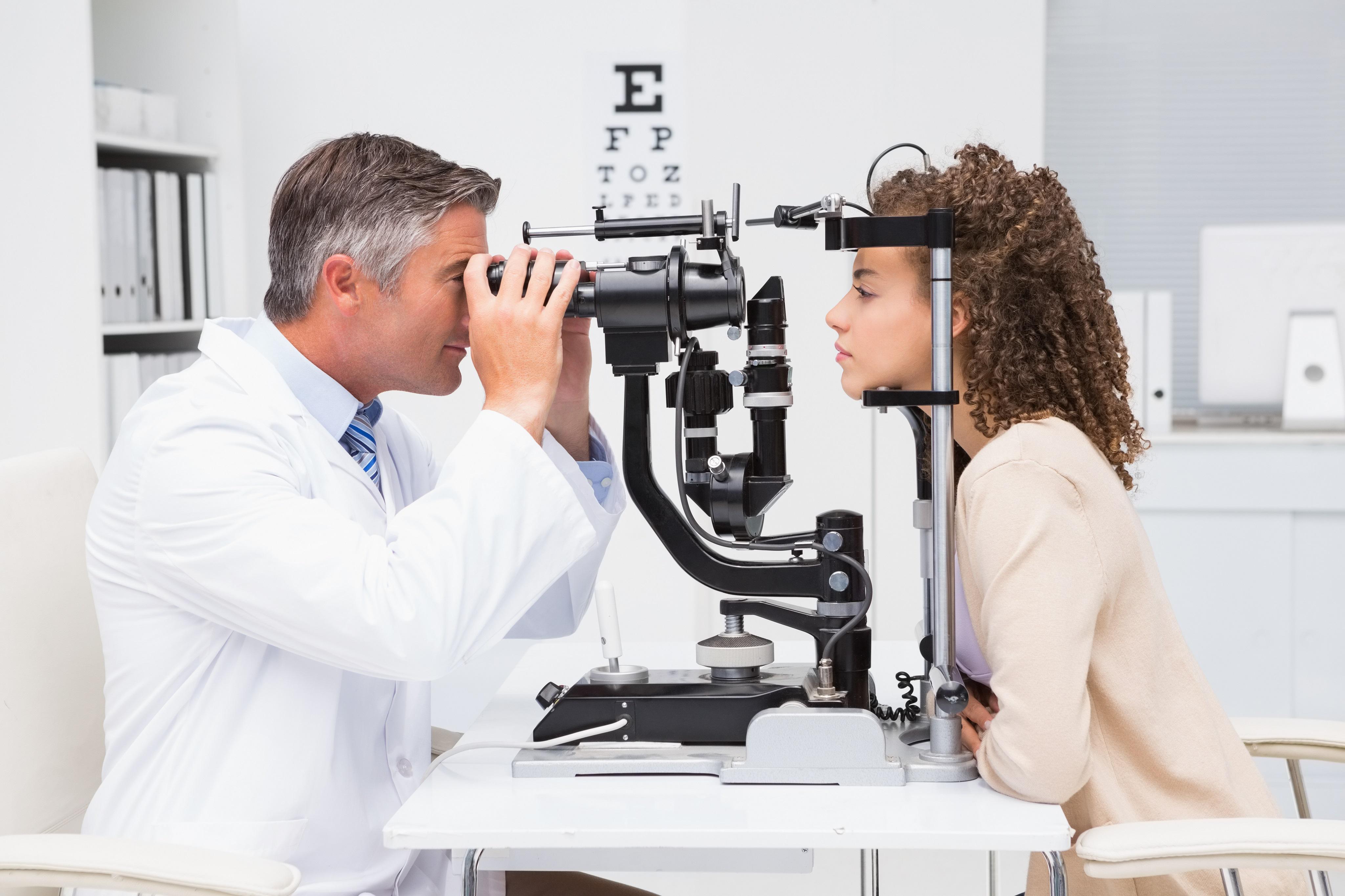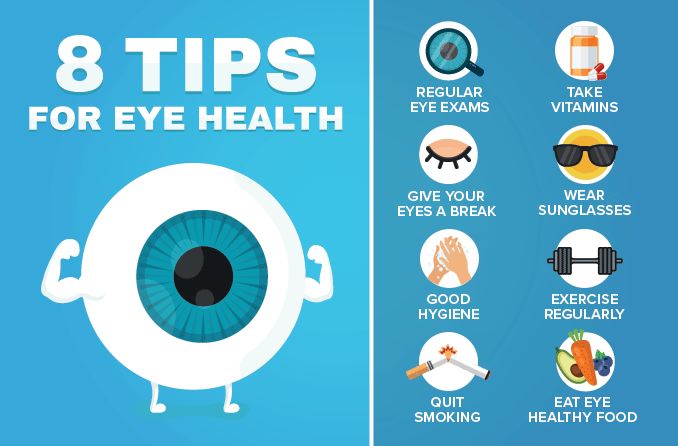Andalusia Eye Center: Introducing Vision Look After Area Wellness
Andalusia Eye Center: Introducing Vision Look After Area Wellness
Blog Article
Is Refractive Surgical Treatment Right for You? Elements to Take Into Consideration for Better Eyecare
In the realm of eye treatment, the choice to undergo refractive surgery is a crucial one that demands thoughtful consideration. As people look for clearness and liberty from the restrictions of corrective lenses, countless variables enter into play when determining the suitability of such a treatment. From the details of one's eye health and wellness to the ins and outs of everyday habits and personal assumptions, each element holds significance in the broader landscape of refractive surgery candidacy. By evaluating these vital elements with treatment and accuracy, a more clear path towards informed decision-making arises.
Eye Health Examination
When considering refractive surgical procedure, a detailed eye health analysis is critical to analyze the suitability of the treatment for every individual. cardiologist andalusia. This evaluation includes a collection of evaluations and examinations performed by an eye care expert to identify the general wellness of the eyes, the existence of any type of underlying problems, and the stability of the refractive mistake
During the evaluation, numerous aspects are considered, such as the patient's case history, existing eye prescription, corneal density, pupil size, and tear movie quality. These evaluations aid to recognize any kind of contraindications to refractive surgical treatment, such as corneal problems, cataracts, or unattended eye infections. Additionally, the assessment helps to handle individual assumptions relating to the possible results of the surgical treatment based on their distinct eye features.
Eventually, the eye health and wellness analysis is essential in making sure the security and efficiency of refractive surgical treatment, as it provides valuable insights right into the individual's eye health condition and helps identify the most appropriate treatment choices for achieving optimum aesthetic outcomes. (eye doctors in andalusia)
Way Of Living Assessment
A complete way of living analysis is essential in establishing the viability of refractive surgery for a person's aesthetic correction demands. Lifestyle variables such as line of work, hobbies, and day-to-day activities play a vital duty in the decision-making process pertaining to refractive surgery. For circumstances, people with careers that involve a high degree of physical activity or direct exposure to ecological aspects might have different visual needs contrasted to those with sedentary workdesk tasks. Comprehending exactly how a person's way of life might influence their vision post-surgery is important for taking care of assumptions and guaranteeing ideal end results.
Additionally, way of life habits such as sports participation, exterior tasks, and even skincare routines can influence the recovery procedure and general success of refractive surgical procedure. Individuals who engage in get in touch with sports might need to take extra precautions to safeguard their eyes during the recuperation period. Furthermore, people with comprehensive sunlight exposure may need extra post-operative treatment to prevent problems. By conducting a detailed lifestyle analysis, eye care experts can tailor their suggestions and treatment strategies to fulfill the distinct requirements of each patient, inevitably causing boosted visual outcomes and fulfillment.
Expectation Alignment

Patients require to understand that while many individuals attain 20/20 vision or far better complying with refractive surgery, some might still need glasses for particular tasks like reading or driving at night. Handling these assumptions helps avoid frustration and dissatisfaction post-surgery, leading to an extra positive overall experience for the person.
Danger Evaluation

Elements that might raise the danger of issues consist of age, particular clinical problems like autoimmune illness, unpredictable vision prescription, thin corneas, and unrealistic patient assumptions. Additionally, picking a competent and experienced surgeon, adhering to pre and post-operative treatment directions diligently, and revealing any type of appropriate clinical background can assist mitigate dangers.
To minimize the possibility of problems, ophthalmologists conduct thorough pre-operative analyses to determine any type of contraindications to surgical procedure. They additionally go over the prospective threats and benefits with patients throughout the examination procedure. By engaging in open interaction and shared decision-making, both the client and the eye doctor can collaborate to figure out if refractive surgical treatment is the best selection based upon individual threat profiles and wanted outcomes.
Appointment Relevance
Taking into consideration the critical function of educated decision-making in evaluating dangers and possible complications in refractive surgery, the consultation process holds significant relevance in leading article people towards ideal results. During the consultation, the eye doctor reviews the patient's eye health, refractive mistakes, and overall suitability for surgical treatment. This first analysis is important this article in establishing one of the most appropriate procedure for each and every individual, considering aspects such as corneal density, pupil size, and existing eye conditions.
Additionally, the examination functions as an opportunity for clients to discuss their assumptions, issues, and any type of inquiries they may have relating to the surgery. Clear communication between the surgeon and the patient is vital to make sure practical assumptions and a thorough understanding of the possible dangers and advantages entailed.
In addition, the assessment allows the specialist to describe the different medical alternatives offered, their particular end results, and the post-operative treatment required. This extensive discussion empowers people to make knowledgeable choices about their eye care, leading to better satisfaction and end results post-surgery.
Final Thought
In verdict, individuals considering refractive surgical procedure must undertake a comprehensive eye health and wellness assessment, examine their way of life behaviors, align their assumptions with prospective outcomes, examine the affiliated dangers, and focus on assessments with eye care specialists. These elements play a crucial role in establishing the viability of refractive surgical treatment for every individual, making certain ideal outcomes and satisfaction with the treatment.
Clients taking into consideration refractive surgical treatment typically have high expectations concerning the results, anticipating excellent vision without the need for glasses or call lenses. While refractive surgical procedure can considerably boost vision and decrease dependence on visual help, it is crucial for people to understand that results may vary based on individual factors such as the degree of additional resources refractive error, corneal thickness, and general eye health.
By engaging in open communication and shared decision-making, both the patient and the ophthalmologist can function with each other to determine if refractive surgery is the best choice based on specific risk accounts and preferred end results.
Thinking about the essential duty of informed decision-making in examining risks and potential complications in refractive surgical procedure, the assessment process holds substantial importance in guiding clients towards ideal outcomes. Throughout the consultation, the eye doctor evaluates the individual's eye wellness, refractive errors, and overall viability for surgical procedure.
Report this page